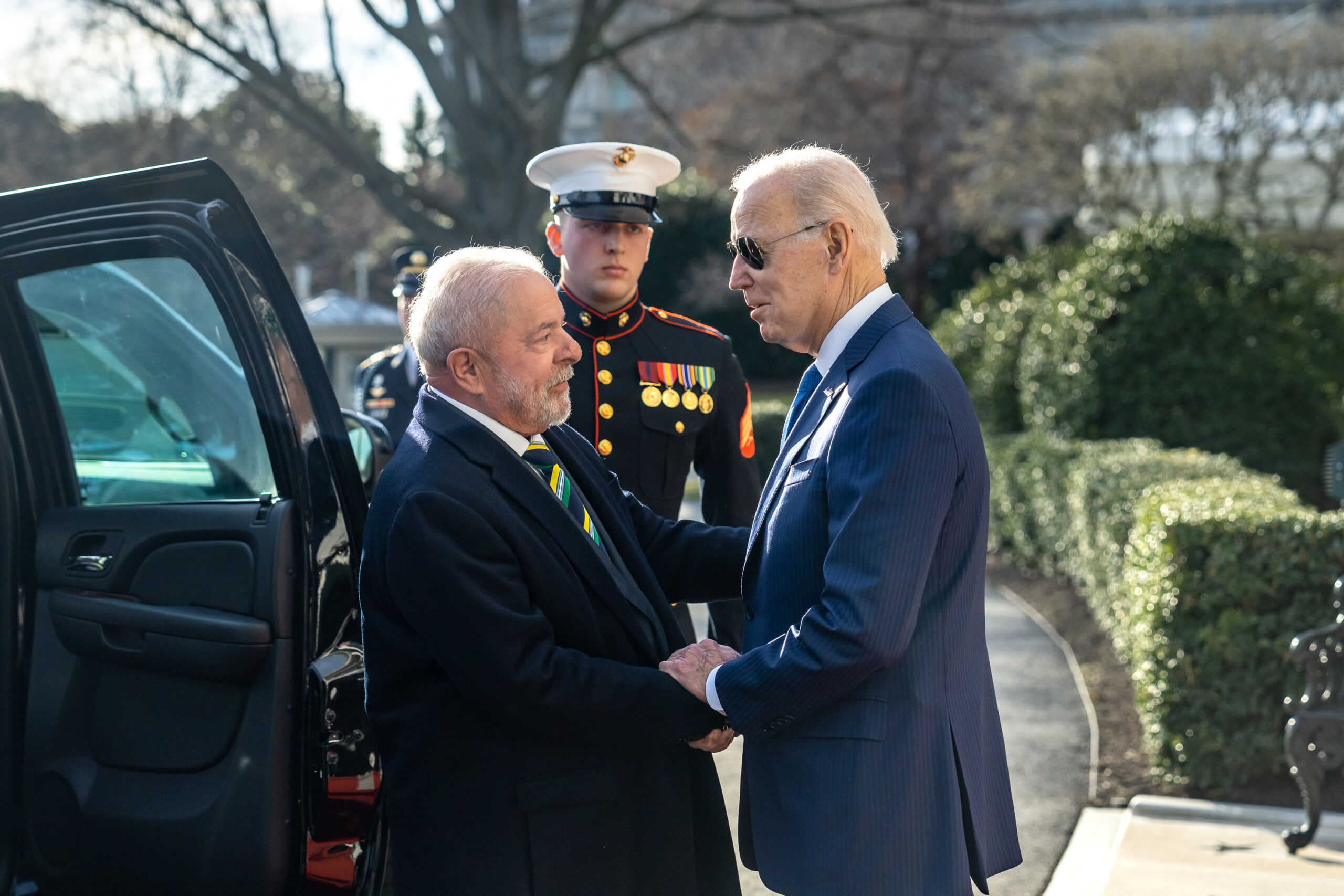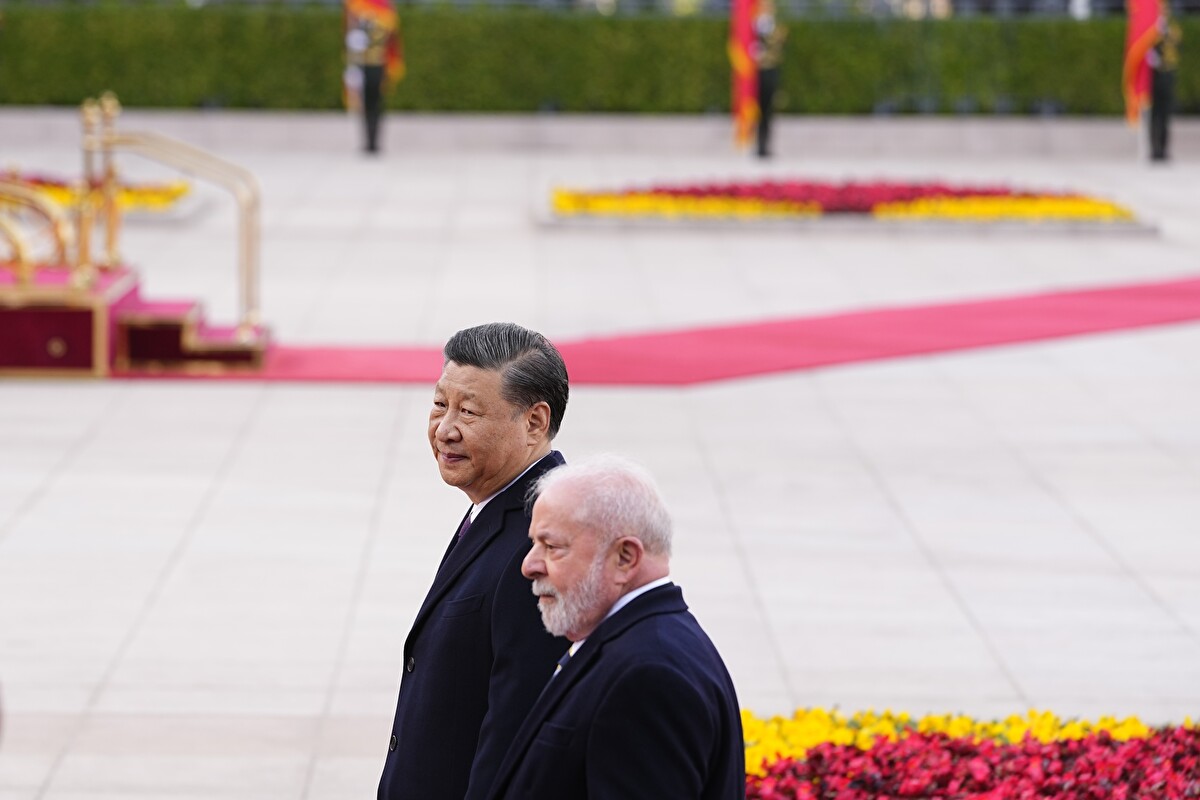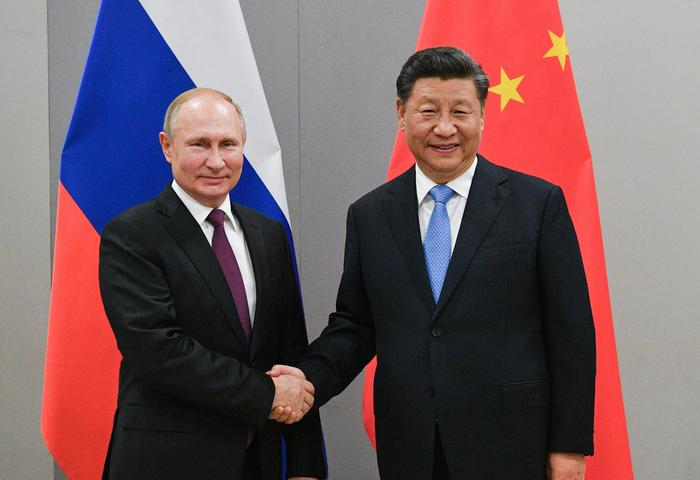In the next “top secret” documents from the Pentagon, the CIA, and the State Department, which sooner or later will “leak” onto the internet, we would also like to read the analysis prepared for the White House of Brazil’s geopolitical moves, the most powerful American country after the United States.
Among the global key players, the giant of South America has become a major concern for the Biden Administration. The current president and ex-trade unionist, Luiz Inácio Lula da Silva, returned to power by defeating his far-right opponent, Jair Bolsonaro, in a highly contested election. Upon his victory, the White House gave a sigh of relief as the outgoing leader was, perhaps more ideologically than in reality, a faithful ally to Trump. Lula’s win certainly seemed to also be a win for the United States and the Biden Administration, however, this idea was quickly squandered.

Lula proves to be an even tougher nut to crack for certain global strategies being pursued by the United States as they are the nation’s guiding force, outweighing any sort of personality and ideology (Meloni would know). Above all, these strategies are fueled by firm national interests, unaltered by a change in government.
The White House immediately decreed a “black or white” chessboard on the global stage forcing nations to either stand for Ukraine and against Russia, or with Putin and against the United States. While European nations overwhelmingly teamed up with the United States, the rest of the world was not so quick to play. You don’t need to go as far as Beijing to understand the pseudo-reasons for Putin’s February 24th invasion, or why maintaining a “neutral” stance on the fighting nations vexes those who unwaveringly support Ukraine.
In the early days of the Russian invasion when India still sat as a nonpermanent member of the Security Council (though reiterating every other day its hopes to sit in the Council as a permanent member), it abstained from the resolution proposed by the United States against Russia. Even Turkey, a NATO member with authoritarian president Erdogan, maintains constructive relations with the Kremlin with the hopes to first “mediate” a swift return to peace, and then a Black Sea grain deal, which could save millions of lives at risk of starvation. South Africa (another aspiring permanent Security Council member), made certain “distinctions” to the resolutions presented by the United States and European Union against the Russian invasion of Ukraine in the General Assembly and in several instances, abstained from voting.
Then there is Lula’s Brazil. As one of the key players to rise in the ranks of the United Nations’ hierarchy, Brazil sided with China and Russia in the Security Council voting to establish a UN Commission inquiry into the attack on the Nord Stream gas pipeline explosion. The resolution was blocked by the abstention from the other 12 Security Council members.

After Lula’s trip to China last week, the news of Brazil’s “impartial” position on the war in Ukraine should hardly be a “surprise.”. Yet the White House expressed its shock commenting on statements made by the Brazilian Foreign Minister, Mauro Vieira, who was joined by his Russian counterpart, Sergei Lavrov, in Brasilia on Monday. “We were struck by the tone of the press conference of the [Brazilian] foreign minister, which was not a tone of neutrality, suggesting that the United States and Europe are not interested in peace or that we share responsibility for the war. That is plainly wrong.” White House Press Secretary Karine Jean-Pierre remarked.
The White House released these statements in the wake of the National Security Council spokesperson John Kirby’s attack on Lula just two days prior. American criticism of Brazil deepened as Kirby accused Lula of “parroting Russian propaganda” during his trip to China and the United Arab Emirates in which the Brazilian president described Washington’s position as “encouraging war” and said that the European Union should instead “encourage peace.”

Of course, after an avalanche of criticism from the West, Lula toned his rhetoric down and reiterated that Brazil denounces the “violation of Ukraine’s territorial integrity”. However, the Brazilian president’s message remains crystal clear. Brazil does not only recognize itself as the most suitable power to mediate peace between Russia and Ukraine, although Ukraine has been wary of Brazil’s intentions, it also recognizes itself as a candidate to lead a world which is as exasperated as it is terrified of the “Cold War” confrontation between the United States and China and an ever-approaching doomsday war.
Lula is not alone in accusing the Biden Administration and the United States of exacerbating global conflict, both in Ukraine and in the fight for its global “supremacy” over China. A celebrated professor of ivy-league Columbia University as well as US-establishment think tanks have also heavily critiqued the Administration’s poor approach to foreign conflicts.
Lula may be able ride this political “indifference” between Russia (or better yet, China) and the US-NATO because he has gained popularity in half of the world, not limited to the remote island nations of the Pacific Ocean, but economic giants spanning several continents such as India and South Africa. In fact, the acceleration within the economic development community regarding BRICS (Brazil, Russia, India, China, and South Africa), and the search for a trading currency alternative to the dollar, initiated by Brasilia, helps to better comprehend the “externalization” of Lula’s travels. These are not to be mistaken as one-off statements, but as serious foreign policy strategies from a global power.

(UN Photo/Eskinder Debebe)
As mentioned in a press conference at the United Nations headquarters, with the Italian Minister Antonio Tajani, at the end of the dubiously “victorious” vote on Ukraine in the General Assembly, Russia is no longer isolated as anticipated sanctions imposed by the West for the invasion of Ukraine. Even Europe, as Macron was the first to express, must remember this.
Brazil, with or without Lula, wants to be among the largest countries to encourage an economic paradigm shift as an alternative to war. Encouraging peace means that Brazil will fight against the strategy of imposing sanctions, not only on Russia, but on countries such as Iran and North Korea as well. Next week, when Russian Foreign Minister Sergei Lavrov will be in New York as the president of the United Nations Security Council, fresh from a trip to Brasilia, we will have a clearer idea of the chances Brazil will have to be among the main mediators to end military conflict today and in the future.
Translated by Ian Udulutch












